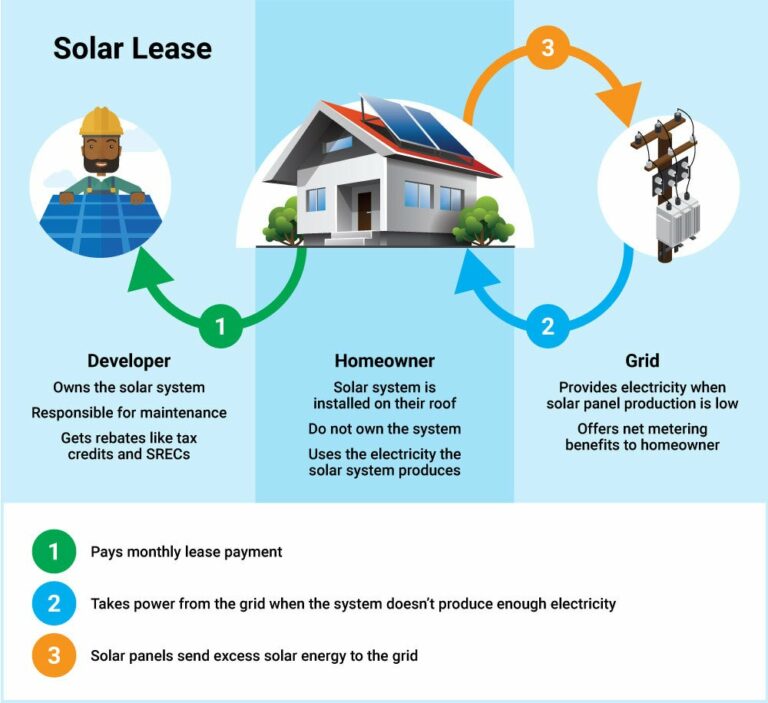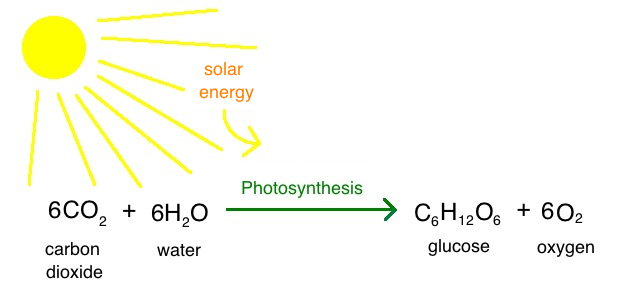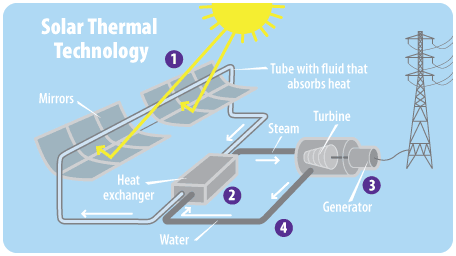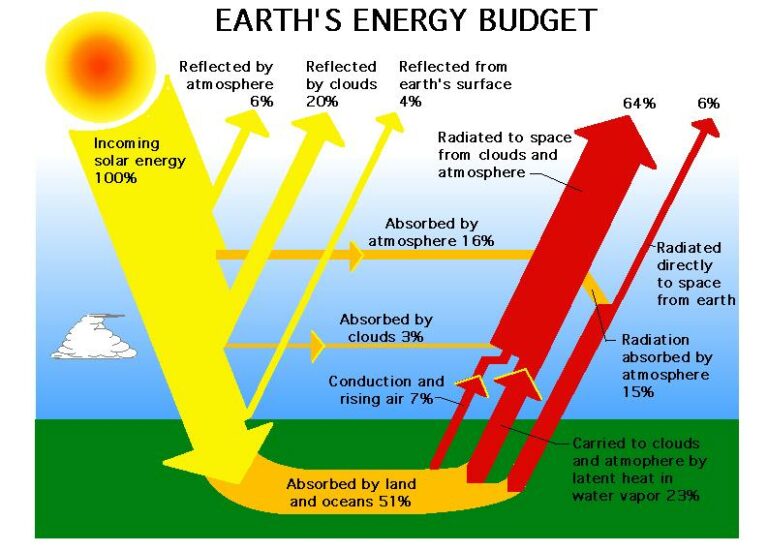How Is Solar Energy Better Than Fossil Fuels?
If you’ve ever wondered why solar energy is a better choice than fossil fuels, then you’re in the right place! In this article, we’re going to explore all the reasons why solar energy is the way to go. So, get ready to uncover the amazing benefits that solar power brings to the table!
Let’s start by understanding the impact of solar energy on our environment. Solar power is a clean and renewable energy source that doesn’t produce harmful greenhouse gas emissions like fossil fuels do. By harnessing the power of the sun, we can reduce air pollution, combat climate change, and protect our planet for future generations.
Not only is solar energy good for the environment, but it also has numerous economic advantages. Solar panels have become more affordable over the years, making it a cost-effective option for homeowners and businesses. By investing in solar energy, you can save money on electricity bills, create job opportunities, and contribute to the growth of a sustainable economy.
Now that you know the importance of solar energy, let’s dive deeper into its benefits compared to fossil fuels. Get ready to learn about the incredible ways that solar energy outshines traditional sources of energy like coal, oil, and natural gas. So, let’s get started and discover how solar energy is better than fossil fuels!
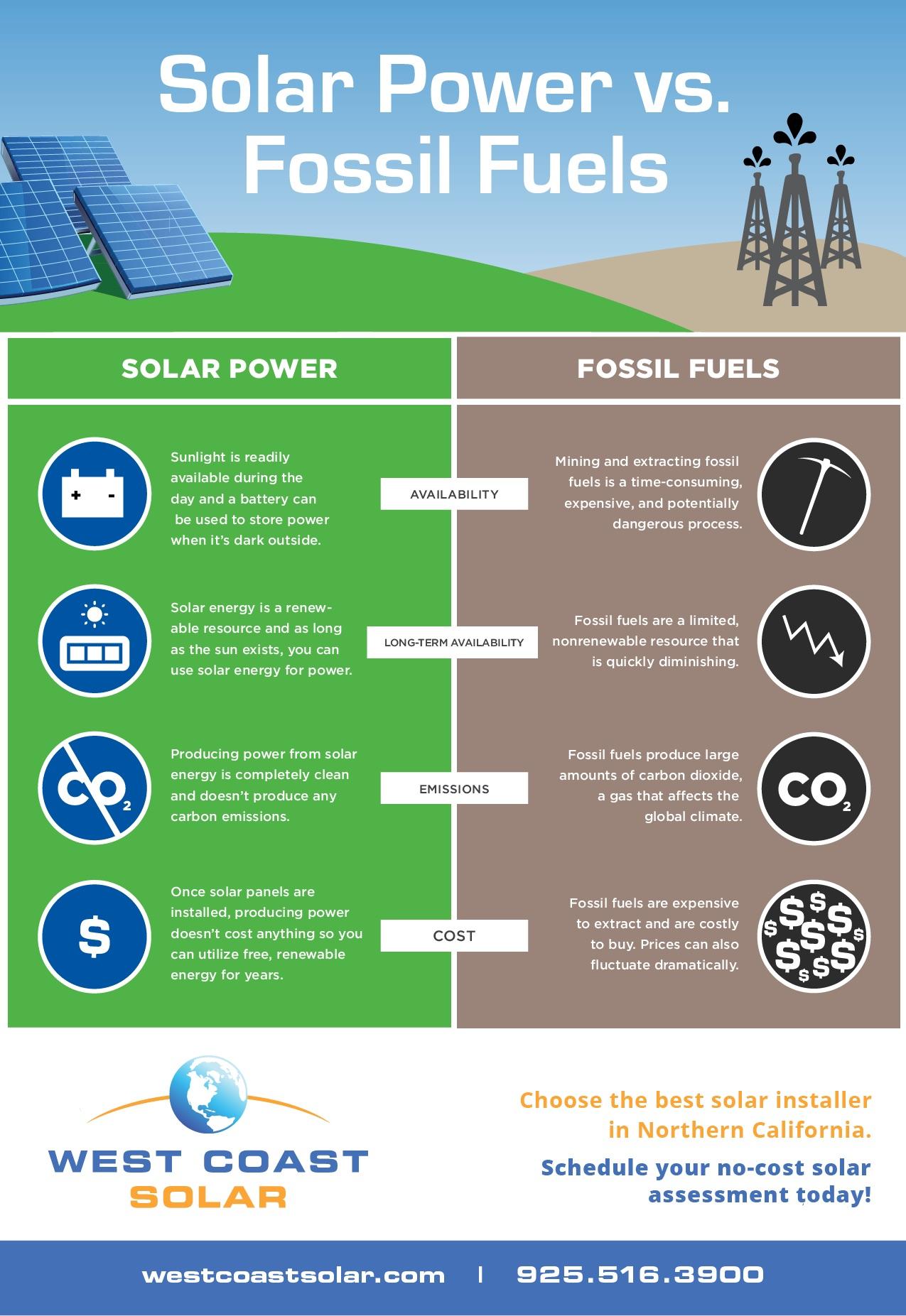
Solar Energy vs. Fossil Fuels: A Sustainable Choice for a Greener Future
Solar energy and fossil fuels are two vastly different sources of power that have significant implications for our planet. In the face of increasing environmental concerns, it is crucial to understand how solar energy surpasses fossil fuels in terms of sustainability and overall benefits. This article will explore the various aspects of solar energy, including its positive impact on the environment, its renewable nature, and its potential to provide long-term solutions for energy needs.
The Environmental Impact of Solar Energy
When it comes to the environmental impact, solar energy takes the lead over fossil fuels. Solar energy is clean and emits zero greenhouse gases during operation, making it a sustainable alternative to the fossil fuel industry. Fossil fuels, on the other hand, release significant amounts of carbon dioxide, methane, and other pollutants into the atmosphere, contributing to global warming and climate change.
Solar energy systems rely on photovoltaic (PV) cells or concentrated solar power (CSP) systems to convert sunlight into electricity. These processes have minimal environmental impact compared to the extraction, processing, and burning of fossil fuels. Additionally, solar power does not produce toxic byproducts or contribute to air and water pollution, preserving the ecosystem for future generations.
Another advantage of solar energy is that it utilizes land resources more efficiently than fossil fuel power plants. Photovoltaic panels can be installed on rooftops, buildings, and even in remote areas, reducing the need for large-scale land allocation. In contrast, fossil fuel facilities require extensive surface mining and drilling operations, leading to habitat destruction and environmental degradation.
Solar Energy’s Renewable Nature
Unlike fossil fuels, which are finite resources formed over millions of years, solar energy is renewable and readily available. The sun is an abundant source of power, providing more energy in one hour than the entire world consumes in a year. By harnessing this energy, we can create a sustainable and self-sufficient future.
Solar energy systems have a long lifespan, with solar panels lasting up to 25-30 years. The maintenance required is minimal, which significantly reduces its lifecycle environmental impact. In contrast, fossil fuel reserves are depleting rapidly, leading to increased costs and concerns about energy security. The finite nature of fossil fuels poses a risk to global economies and stability, making the transition to renewable energy sources like solar essential.
Furthermore, solar energy is not influenced by geopolitical tensions or market fluctuations in the same way as fossil fuels. With solar power, nations can reduce their dependence on imported fuels and strengthen their energy independence. This stability promotes economic growth and reduces the vulnerability associated with fossil fuel reliance.
The Benefits of Solar Energy
Solar energy offers numerous benefits beyond its positive impact on the environment and its renewable nature. Let’s explore some of the key advantages of harnessing solar power:
1. Cost Savings:
While the initial installation costs of solar panels may be higher, the long-term benefits outweigh the investment. Solar energy allows homeowners and businesses to generate their electricity, significantly reducing or even eliminating monthly utility bills. Additionally, government incentives, such as tax credits and subsidies, further offset the upfront costs, making solar energy a financially viable option.
2. Job Creation: The solar industry is a major source of employment, creating jobs in installation, manufacturing, research, and development. As the demand for solar energy continues to rise, so does the need for skilled workers, supporting local economies and fostering job growth.
3. Energy Independence: By embracing solar energy, nations can reduce their reliance on imported fossil fuels. This energy independence strengthens national security and decreases vulnerability to geopolitical factors and price fluctuations in the global energy market.
Solar Energy vs. Fossil Fuels: A Comparison
To better understand the advantages of solar energy over fossil fuels, let’s compare them side by side:
| Aspect | Solar Energy | Fossil Fuels |
|---|---|---|
| Environmental Impact | Solar energy has no greenhouse gas emissions and reduces air and water pollution. | Fossil fuels release significant carbon dioxide and other pollutants, contributing to climate change. |
| Renewable Nature | Solar energy is a renewable resource that relies on the sun’s infinite energy. | Fossil fuels are finite resources that are depleting rapidly. |
| Energy Independence | Solar energy reduces dependence on imported fuels, promoting energy independence and security. | Fossil fuels often require imports, making nations vulnerable to global market fluctuations and geopolitical tensions. |
Investing in Solar Energy for a Brighter Future
Solar energy offers a sustainable and greener alternative to fossil fuels, mitigating the detrimental effects of climate change and enhancing energy independence. By harnessing the power of the sun, we can build a more resilient and environmentally conscious world. Embracing solar energy not only benefits the individual, but it also contributes to the collective effort in creating a brighter future for generations to come.
Key Takeaways: How is Solar Energy Better Than Fossil Fuels?
- Solar energy is renewable, meaning it won’t run out like fossil fuels.
- Solar panels produce clean energy and don’t release harmful pollutants into the air.
- Solar power helps reduce greenhouse gas emissions and combat climate change.
- Solar energy is becoming more affordable and accessible to homeowners and businesses.
- Using solar power can save money on electricity bills in the long run.
Frequently Asked Questions
Here are some common questions about the benefits of solar energy compared to fossil fuels.
1. How does solar energy help reduce pollution?
Solar energy is a clean and renewable source of power that generates electricity without harmful emissions. When compared to the burning of fossil fuels like coal and oil, solar energy produces significantly lower levels of air pollution and greenhouse gases. By harnessing the power of the sun, we can reduce our reliance on fossil fuels and mitigate the negative environmental impacts associated with them.
Furthermore, solar panels do not consume water in order to generate electricity, which is another advantage over fossil fuel power plants that require a significant amount of water for cooling purposes. By choosing solar energy, we can make a positive difference in our air quality, climate, and water conservation efforts.
2. What are the economic benefits of solar energy?
Solar energy offers numerous economic advantages over fossil fuels. Firstly, once installed, solar panels have low or no operating costs, resulting in long-term savings on utility bills. Additionally, solar energy provides stable energy prices, as it is not subject to the price volatility associated with fossil fuels.
Moreover, the solar industry has experienced significant growth, leading to the creation of numerous jobs. In fact, according to the International Renewable Energy Agency, the solar energy sector employed over 3.8 million people worldwide in 2019. As the industry continues to expand, it will provide even more employment opportunities and stimulate local economies.
3. How does solar energy help combat climate change?
Solar energy plays a crucial role in combating climate change. By displacing the use of fossil fuels, solar energy helps reduce greenhouse gas emissions, which are one of the main contributors to global warming. The sun’s energy is abundant, and harnessing it does not release carbon dioxide or other harmful pollutants into the atmosphere.
In addition, solar panels have a relatively long lifespan and require minimal maintenance. This means that once installed, they can produce electricity for many years without further contributing to climate change. By embracing solar energy, we can transition to a more sustainable and cleaner energy future, thereby mitigating the impacts of climate change on our planet.
4. Is solar energy more reliable than fossil fuels during emergencies?
Yes, solar energy is more reliable than fossil fuels during emergencies. When natural disasters or other crises occur, power grids can be damaged or disrupted, resulting in widespread power outages. However, solar panels can continue to generate electricity even in these situations, as they operate independently from the grid.
Furthermore, solar energy systems with battery storage can store excess energy generated during daylight hours for use during the night or when the sun is not shining. This capability provides a reliable source of electricity, ensuring that critical infrastructure and essential services can continue to function during emergencies, promoting resilience and reducing dependence on unstable energy sources.
5. Can solar energy be used in remote areas?
Yes, solar energy is particularly well-suited for use in remote areas. Traditional energy infrastructure can be costly and challenging to build and maintain in these locations. Solar energy, on the other hand, can be harnessed wherever the sun shines, making it a viable alternative in isolated or off-grid areas.
With advancements in solar technology and the decreasing costs of solar panels, more and more remote communities are turning to solar energy as their primary source of power. This not only improves access to electricity but also enhances the quality of life in these areas by providing a reliable and sustainable energy solution.
Summary
Solar energy is better than fossil fuels for several reasons. First, it’s renewable and won’t run out like fossil fuels. Second, it doesn’t produce harmful greenhouse gas emissions that contribute to climate change. Third, solar energy is becoming more affordable and accessible. Additionally, solar panels can be installed on rooftops, reducing the need for extensive land use. In contrast, fossil fuels are limited in supply, contribute to air and water pollution, and are becoming more expensive to extract. Switching to solar energy can help protect the environment and ensure a sustainable future for all.
Solar energy has many benefits over fossil fuels. It’s clean, renewable, and doesn’t harm the planet. By harnessing the power of the sun, we can reduce our reliance on finite resources and combat climate change. Investing in solar energy means investing in a brighter and greener future. So let’s embrace solar power and work towards a cleaner and more sustainable world.


